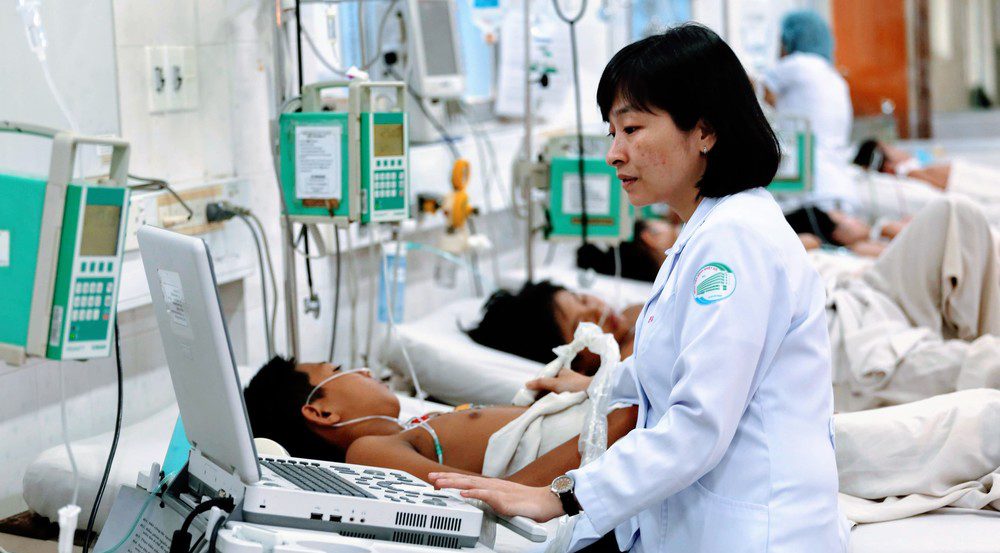OUCRU is among four major clinical trial networks in low-resource settings to join an exciting partnership with the Good Clinical Trials Collaborative (“the Collaborative”) to enhance clinical research in low-resource settings. The collaboration aims to support regional research ecosystems to prioritise collaborative, informative and efficient research responses to public health challenges.
OUCRU joins ADVANcing Clinical Evidence in Infectious Diseases (“ADVANCE-ID”), Africa Health Research Institute (“AHRI”), The Global Health Network (“TGHN”), and the Collaborative to form Good Trials Prism[1]. Supported and funded by Wellcome, this international network will promote and drive the implementation of the five scientific and ethical principles of good clinical trials within the research environments where the networks are based – Latin America, Southeast Asia, and South Africa.
These five principles are outlined in the Collaborative’s Guidance for Good Randomised Clinical Trials (“the Collaborative’s Guidance”) and are now reflected in the recently published draft guidance for best practices for clinical trials by the World Health Organization, currently open for public consultation.
Addressing challenges in low resource settings
Good Trials Prism is the first program of its kind to put these principles into practice across a diverse range of geographies and health challenges, particularly focusing on their applicability to low- and middle-income countries facing high rates of communicable and noncommunicable diseases, alongside limited research capacity and resources.
High quality, principles-based guidance can play a crucial role in mitigating these challenges by providing a robust platform for all stakeholders to focus their efforts effectively and work towards common goals.
A collaborative partnership

Central to Good Trials Prism is the development of education and training materials to promote understanding and adoption of the five principles, openly available for others to utilise. The program will also undertake capacity strengthening, policy, advocacy, training and communications work, including delivering workshops, webinars, and training courses to promote sharing of knowledge and best practices.
The networks will play a leading role in promoting and implementing the principles in their respective regions by leveraging their local knowledge and existing relationships and tailoring resources to the needs of their research environments.
“Good Trials Prism is a fantastic platform to further our mission to promote and support high-quality clinical trials globally,” said Professor Sir Martin Landray, Senior Lead of the Collaborative. “By working together to apply the principles of a good trial as outlined in the Collaborative’s guidance and now in WHO’s draft guidance, this partnership demonstrates how we can collaborate to strengthen clinical trial systems and overcome barriers to generating reliable evidence in low-resource settings and across the world.”
Ms Evelyne Kestelyn, Head of the Clinical Trials Unit at OUCRU, said: “Being a part of Good Trials Prism allows institutions like OUCRU to share their vast expertise in clinical research and champion sustainable and equitable development of capacity in Southeast Asia. By embracing the principles of good clinical trials and working in tandem with other leading networks, we firmly believe we are well positioned to tackle the unique challenges facing clinical research and make a meaningful impact on health outcomes in this region.”
Five principles of good RCTs
- Good RCTs are designed to produce scientifically sound answers to relevant questions
RCTs should help resolve important uncertainties about the effects of health interventions. This requires the combination of key design features such as proper randomisation to avoid selection bias, adequate sample size to minimise the play of chance, unbiased assessment of outcomes, and intention-to-treat analyses. - Good RCTs respect the rights, safety, and well-being of participants
Ethical clinical trials combine seeking answers to important questions with scientific validity and appropriate protection and respect for all involved, especially participants. Independent review of proposals for new research through a research ethics committee (or equivalent) is an important governance tool and can help ensure appropriate steps are taken to protect the rights and welfare of participants. Accessible, clear communication and relevant consent at all stages of an RCT are at the heart of this principle. - Good RCTs are collaborative and transparent
All those involved in RCTs share responsibility for building and sustaining the trust of collaborating partner organisations and clinical communities, participants, and the wider public. Trust is undermined by a lack of relevance or transparency and a lack of respect for the rights and values of participants and those whose care will be influenced by the results. - Good RCTs are designed to be appropriate for their context
Ensuring that a trial is set up to be practicable and produce reliable, actionable results is an important scientific and ethical duty. Consideration of the context and existing resources in a proposed trial setting can better inform effective trial design. - Good RCTs manage quality effectively and efficiently
Delivery of a high-quality trial requires competent decision-making and coordinated execution. Good governance and good trial quality management can help achieve these features. The focus should be on adopting risk-based proportionate approaches, identifying the key issues that would have a meaningful impact on participant well-being and safety or on decision-making based on the trial results.
[1] The name Prism underlines the key objectives of the program – “PRomoting” and “Implementing” the principles of good RCTs with the aim of “Strengthening” clinical trial systems in low-resource settings. Just like a prism, which refracts light into various components, the name also reflects the program’s approach to applying the principles of good RCTs across multiple health challenges and diverse contexts.





